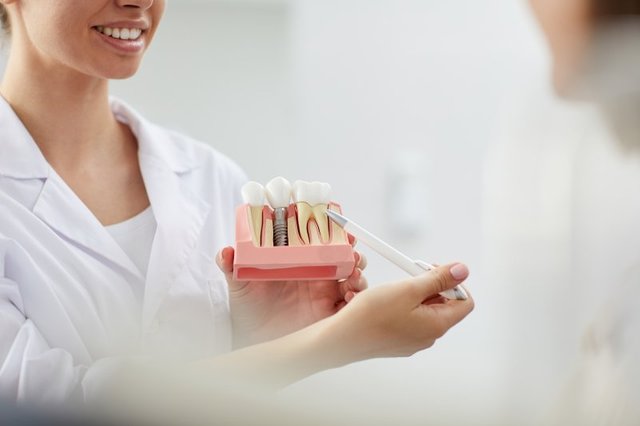5 Compelling Reasons to Choose Dental Implants for Missing Teeth

If you have missing teeth, dental implants may be the solution you need. These innovative tooth replacement options consist of small titanium screws that are placed in the jawbone and serve as a strong foundation for natural-looking dental crowns. Only the crowns are visible, creating a seamless appearance that mimics your real teeth. Whether you are missing one tooth or several, dental implants provide numerous benefits that can significantly improve your quality of life. Read on to explore five key reasons why you should consider dental implants to replace your missing teeth.
1. Natural feel and appearance
One of the standout features of dental implants is how natural they feel and look. The implants are securely attached to the jawbone, similar to how your natural teeth are rooted in place. Made from titanium, a material known for its compatibility with the human body, dental implants fuse with the bone over time. This integration provides a strong and stable foundation for your replacement teeth. After the healing period, the implant-supported crowns will feel like your own teeth, allowing you to eat, speak, and smile without worry. Unlike removable dentures, which can slip or shift, dental implants stay firmly in place, giving you the confidence to engage in everyday activities.
2. A permanent solution
Dental implants are designed to last a lifetime. Once they are successfully integrated into your jawbone, they become a permanent part of your mouth. This longevity makes dental implants a cost-effective option in the long run. While other restorative options, like dentures or bridges, may require replacement or repairs over time, dental implants do not come with such recurring costs. By choosing implants, you invest in a long-term solution that reduces the need for future dental work, providing peace of mind and saving money over time.
3. Prevention of jawbone deterioration
When you lose a tooth, the underlying jawbone can start to deteriorate due to a lack of stimulation. Your teeth provide essential support to the jawbone, helping it maintain its strength and density. When a tooth is missing, the bone begins to lose volume, which can lead to changes in your facial structure over time. This can create an aged appearance and increase the risk of fractures. Dental implants address this issue by bonding directly to the jawbone, providing the necessary stimulation to maintain its health. No other tooth replacement option offers this crucial benefit, making dental implants a superior choice for preserving jawbone integrity.
4. Safety for adjacent teeth
Another significant advantage of dental implants is that they do not compromise the health of neighboring teeth. Unlike bridges, which require the alteration of adjacent teeth for support, dental implants are independent units. This means they do not place additional stress on nearby teeth, which helps maintain their strength and health. Additionally, partial dentures can rely on nearby teeth for stability, which may lead to those teeth becoming loose or decayed over time. With dental implants, you can restore your smile without affecting the integrity of your existing teeth.
5. Easy maintenance
Maintaining dental implants is simple and similar to caring for your natural teeth. You can brush and floss your implants just like you would with your regular teeth. There’s no need for special adhesives or solutions that are often required with dentures. Implants are also not susceptible to cavities like natural teeth; however, they can be affected by gum disease if proper oral hygiene is not maintained. Regular brushing, flossing, and routine dental visits are essential to ensure your implants remain healthy and functional for a lifetime.
The bottom line
Dental implants provide a range of benefits that make them an excellent choice for anyone with missing teeth. They offer a natural appearance and feel, are designed to last a lifetime, prevent jawbone deterioration, protect neighboring teeth, and are easy to maintain. If you are considering dental implants, consult your dentist to discuss your options and see if they are right for you.